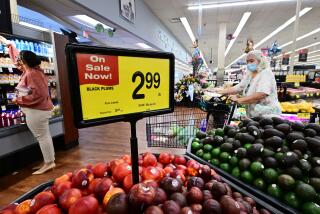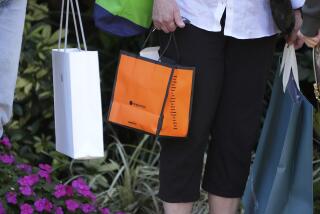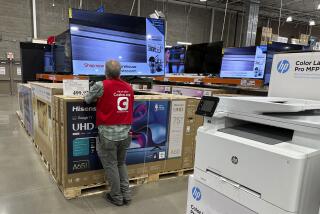Consumer confidence surges to near 6-year high
WASHINGTON -- U.S. consumer confidence has recovered to pre-recession levels, but it’s unlikely to stay up for very long.
The University of Michigan said Friday that its index of consumer sentiment jumped to 84.5 at the end of May, from 76.4 in April. That’s the highest reading since July 2007, just a few months before the Great Recession began, and in line with surveys by the Conference Board and others showing a similar rise.
The Michigan survey found upper-income households leading the way, as this group has benefited more from a rising stock market and higher home prices. Many also took note of the steady. if less than stellar, job gains.
“The overall mix of economic news recently heard by consumers was the most positive it has been in the past 10 years,” said the survey statement.
But a separate government report Friday showed why the upbeat mood could be short-lived.
Consumers cut their spending by 0.2% in April, the first decline in nearly a year, said the Commerce Department.
The pullback came after relatively strong spending in the first quarter, but income gains have not kept pace and households have had to dip into savings to support their consumption.
Consumers are getting some help from very low inflation as gas prices have fallen since earlier this year and the cost of many other goods and services are held in check. But the still-weak labor market has restrained wage growth, and consumers are expected to feel a bigger pinch soon from the government spending cuts known as the sequester.
“The resiliency of consumer sentiment will be tested in the coming months,” said Timothy Daigle, an analyst at Moody’s Analytics. “If the story plays out to our script,” he added in a research note Friday, “it is hard to imagine sentiment not experiencing another summer swoon -- similar to what has occurred in each of the last few years.”
ALSO:
Bernanke warns against scaling back Fed stimulus too soon
Consumer spending fell in April; first drop in nearly a year
U.S. is only ‘advanced economy’ that does not require paid vacation







